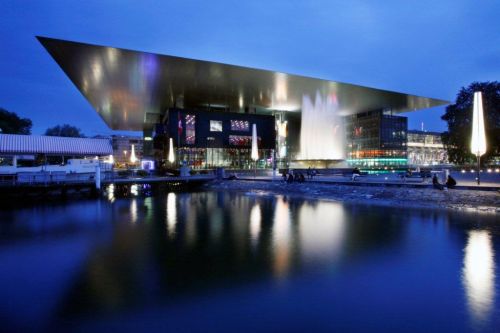 Switzerland Lucerne Festival Mahler: Concertgebouw, Daniele Gatti (conductor) Kultur- und Kongresszentrum Lucerne, 1.9.2013 (JR)
Switzerland Lucerne Festival Mahler: Concertgebouw, Daniele Gatti (conductor) Kultur- und Kongresszentrum Lucerne, 1.9.2013 (JR)

Mahler: Symphony No. 9
The Lucerne Festival celebrates its 75th birthday this year. It was in August 1938 that Toscanini conducted a gala concert at Wagner’s Villa Tribschen on the south shore of LakeLucerne and this marked the start of this Festival’s glorious history. Its inception also marked an act of resistance, for earlier that year Hitler had marched into Vienna. Racially persecuted conductors and musicians found refuge in Switzerland.
Strangely, Jewish composers such as Mahler had to wait some time before being accepted after the War. Mahler symphonies only really started to feature at the Lucerne Festival in the mid-Nineties; until then there had only been sporadic performances, with none at all in the fourteen years between 1968 and 1983 when Mehta played the Third Symphony in Lucerne for the very first time! And it was ten years later, in 1993, that Lucerne first heard the – admittedly rather unapproachable – Seventh under Michael Gielen. The Eighth even had to wait until 2001, but that was mainly due to the fact the old concert hall in Lucerne could not accommodate the necessary orchestral and vocal forces. Since the opening of the splendid new hall, Mahler symphonies have, happily, been coming thick and fast.
The Concertgebouw’s second-to-none pedigree in Mahler (from Willem Mengelberg, through Eduard van Beinum, Bernard Haitink and Riccardo Chailly) is undisputed, so the interest in this concert was more focused on Gatti’s interpretation. Since leaving London and the Royal Philharmonic in 2009, Gatti has conducted numerous highly prestigious orchestras and in concert turned his attention very much to Mahler. His interpretations have been highly regarded and this fine thoughtful performance of the Ninth proved to be no exception. This was no ascetic Boulezian interpretation, nor was there any Maazelian elegance, this was an overtly Italianate full-bloodied, heart-on-the-sleeve, performance.
It helps, of course, to have the luxury of the Concertgebouw on stage. They clearly belong in the Big Three of European orchestras but there is no hint of arrogance, simply Dutch humility and high musicianship.
Gatti, from the very gentlest of openings, wrung the energy out of each note of the symphony and one marvelled at the warmth of every section of the orchestra. The audience was spellbound and one could have heard a pin drop at the end of both the first and final movements. I was particularly taken by the bobbing clarinets in the second movement, the skittish Ländler, where Gatti could afford to be more relaxed, negotiating tempo gear changes with consummate skill. The horns are a glory of the Concertgebouw and they impressed in the Rondo-Burleske as did the flaxen mop-headed timpanist.
The almost inaudible sections of the final movement were most moving, finely judged by Gatti, and almost brought tears to the eyes. Gatti was equally moved by the huge ovation he received for this performance, from audience and orchestra alike. The latter, from this experienced Mahler orchestra, is quite a compliment and was wholly deserved.
John Rhodes